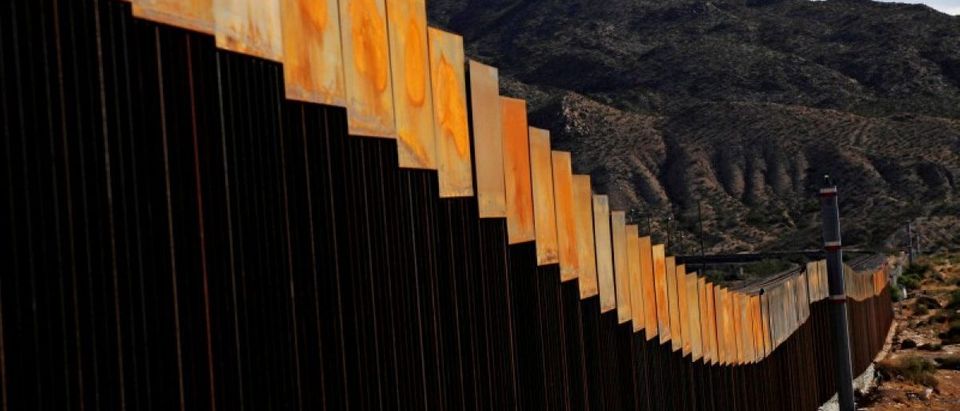Senator Tom Cotton (R-AR) has it right: Speaker Paul Ryan’s ‘Border Tax Adjustment’ is a bad idea. One clue: Ryan’s put a fancy name on a simple idea. His ‘Border Tax Adjustment’ in simple language means ‘import taxes on everything.’ It will result in price increases on almost everything, while workers’ pay remains flat. This is gross indifference to middle and working class Americans – Trump voters.
For all of Speaker Ryan’s so-called wonkishness, he seems to have a simplistic attitude to trade: that America imports only finished goods. Not so.
While we’re all familiar with imported clothing, a major part of U.S. imports consists of ‘intermediate goods’ – things American companies import to produce a final product.
If you’re an obsessive country-of-origin label reader (like me), you’ll see products marked “Made in the USA with US and imported components”. The last two words mean ‘imported intermediate goods.’
A frozen pie, for example, might be made with Canadian dough and fruit syrup, as Canadian sugar is much cheaper than U.S. sugar. But the fruit could be sourced in the United States, and the pie assembled here. Thus the pie box would sport a label stating: “made with US and imported components.”
The U.S. chemical industry is a major user of intermediate goods, some of which are imported.
Therefore, a tariff, or an extra tariff on top of the existing one on an intermediate good would trigger a price increase. The result: the price of the final product, even if it’s made in America, goes up too.
Lastly, tariffs on intermediate goods can incentivize U.S. firms to relocate to countries that don’t tax such products.
In fairness, Ryan’s ignorance of an extra import tax on U.S. manufacturers is not new.
A little background: since 1982, Congress (and the President) made certain ‘miscellaneous’ products duty-free. From time to time, the House Ways and Means committee announced a ‘round’ whereby it accepted petitions to remove tariffs on goods that were not major trade items, nor would the lifting of the tariff will hurt U.S. jobs. The petitions were reviewed by the U.S. International Trade Commission (USITC). (This process was modified last year, see below.)
The final work product: the ‘Miscellaneous Tariff Bill’. It’s generally a list of specialty chemicals plus a few non-chemical products for which import duties are suspended.
Years ago, I recall a U.S. leather tanner requesting a zero tariff on an Italian leather stamper (the kind that turns ordinary leather into looking like ostrich leather). The tanner made a good case – the stamper would help them break into the higher-end handbag and leather car seat market.
Normally, compiling a ‘Miscellaneous Tariff Bill’ is dull, but was a hot topic in the 2011 House Republican caucus. They had just wrested control from the Democrats and some opposed the tariff bill as a special tax break for industry. In fact, that year I heard Paul Teller (then head of the House Republican Study Committee) speak angrily about how U.S. industries did not need this so-called special tax break, which he said was akin to an earmark. Thus, the 2011 bill died.
But there was a price to its death which Teller and others on Capitol Hill were either ignorant of or just indifferent to.
According to the National Association of Manufacturers, the loss of the 2011 bill resulted in a $748 million tax hike on manufacturing in the United States, and a $1.857 billion economic loss to the U.S. economy. And all this occurred during an extremely slow economic recovery.
A few years later tempers cooled, and certain legislators adopted a more realistic (no, I don’t mean globalist) view of trade.
In 2016, bipartisan legislation was passed and signed by President Obama to make the product review process more transparent, with the USITC accepting and reviewing petitions, but the House Ways and Means Committee retaining the final say as to which products go on the duty-free list.
Returning to Speaker Ryan’s ‘Border Adjustment Tax,’ as the Miscellaneous Tariff bill mess demonstrates, even seemingly minor tariff changes on intermediate goods can have a huge impact on American manufacturers. U.S. imports don’t consist of finished goods only (as the Speaker seems to assume); there is a huge sector of intermediate goods imported by U.S. firms for further processing.
Thus a ‘Border Adjustment Tax’ would affect nearly all products, whether made in the United States or not. As such, it would increase prices to consumers. Translation: it’s inflationary at a time when workers’ wages are flat.
I agree with Senator Cotton. Speaker Ryan’s ‘Border Adjustment Tax’ is a bad idea. Based on an overly simplistic view of trade, Ryan’s tax is inflationary, and will hurt U.S. manufacturers – the very people President Trump promised to help.
House Republicans once made a similar mistake on trade in 2011. Has Speaker Ryan learned nothing from that?


